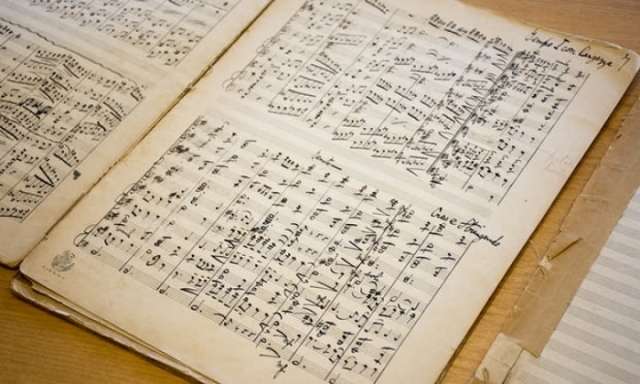It is not known how the two works by the composer best known for The Planets found their way to New Zealand, but both are in “excellent condition” and showing minimal signs of damage, said symphonia musician Bronya Dean.
Dean was able to authenticate the works by matching the handwriting, address and signature of Holst with internet sources, and confirming the discovery with the Holst Archive in England.
According to the BOP Symphonia, Folk Songs of Somerset was last performed by the City of Bath Pump Room Orchestra in 1906 and conducted by Holst.
After this, Holst reworked some of the score into his new work A Somerset Rhapsody, which was published in 1907 and continues to be performed today.
The original Folk Songs from Somerset was never published and has not been played or heard in over a century.
“It is very exciting,” says Dean. “I like Holst and know his work reasonably well but it is really nice to have some sort of personal connection to him now, it feels genuinely close.”
Justus Rozemond, music director of BOP Symphonia, first sighted the lost scores a few years ago while clearing out the archive with librarian Gloria Pheasant. He said his initial response was one of “disbelief”.
“The signs were there such as the the handwriting matched, and the address on the front page made sense but I still didn’t believe it. Life teaches you to be sceptical if things look too good to be true.”
Rozemond has made a computer recording of both scores and said Holst’s Folk Songs from Somerset may not be a “great work”, but it is certainly “tuneful”.
“The most interesting bit is the middle section, where the musical material is more developed” says Rozemond.
“Holst basically re-did this middle section, and expanded it into the Somerset Rhapsody, which he must have been more pleased about. Still, it’s performable, definitely tuneful”.
The Bay of Plenty Symphonia plans to perform the lost works early next year, and then said it was likely they would send them to England, where archivists and music historians were eagerly anticipating their return.
“These manuscripts are a remarkable find,” said Colin Matthews of the Holst Foundation in the UK.
“Particularly the Folk Songs from Somerset which don’t exist elsewhere in this form.”
Gustav Holst was born in 1874 and died in 1934. He was one of several English composers in the early 20th century who were interested in using folk songs in their compositions.
More about: #GustavHolst















































